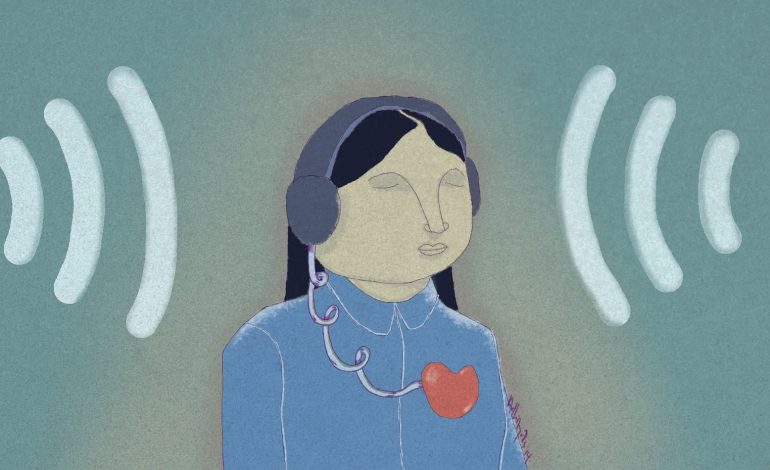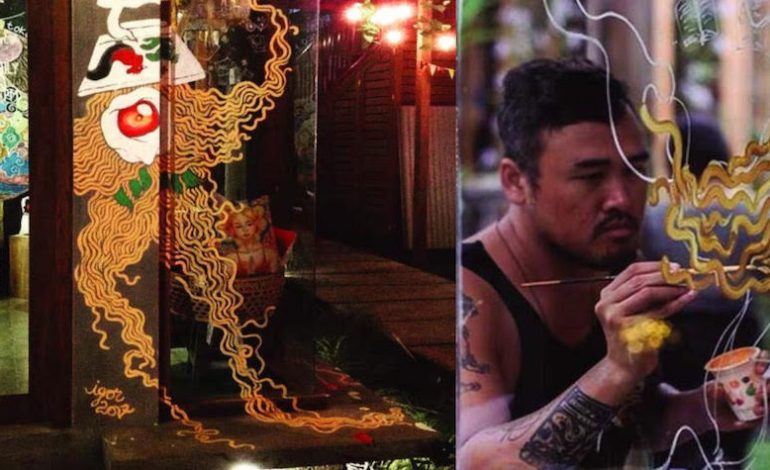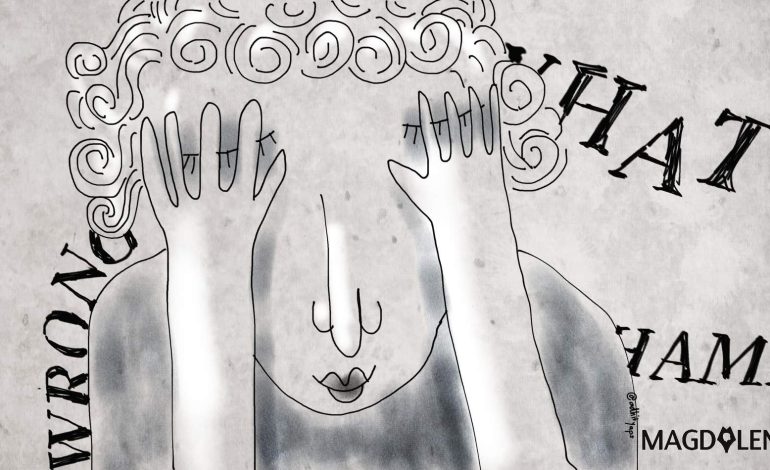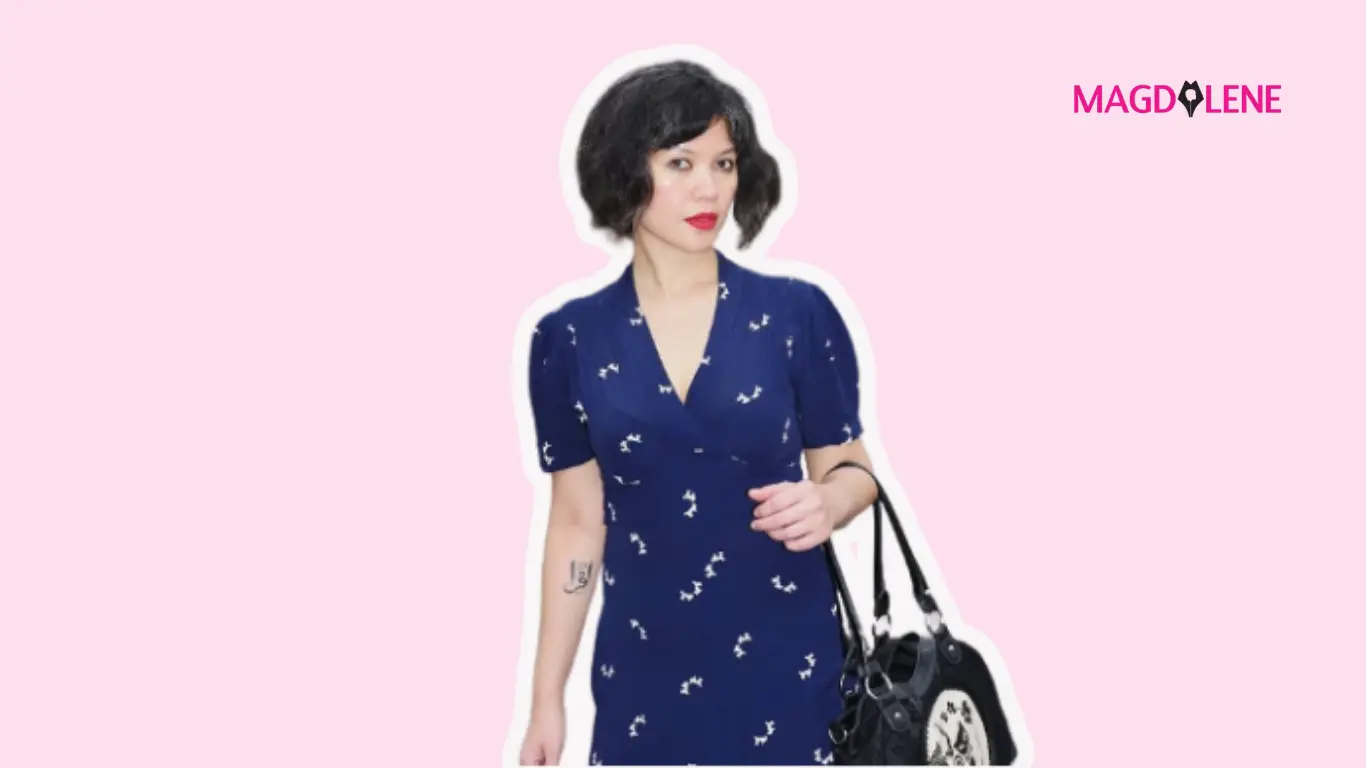Coming Out as Autistic

Three years ago, I decided to come out as an autistic person in a public speaking assignment for my college course. I intended to talk about my experience of living with autism as well as the struggle. I had nearly forgotten the exact details of the assignment, but the sensation of speaking out still lingers. My steps were heavy, dragged across the floor. I felt an odd, heavy lump on my throat, choking every single syllable I wished to speak. The words came out as jerking staccatos. My own restless breath is akin to a rushing whirlwind.
The anxiety could not simply be blamed on stage fright, although it definitely played a part. Something more perilous happened inside my brain. In my attempt to articulate my experience, I had to unravel the messy thread of living with autism. Diagnosed at the age of three, my earliest memories were filled with therapy session. I had been living with the awareness of my autism for most of my life, and it was complicated.
My own complicated relationship with autism might be related to the multi-faceted nature of autism in itself. After all, autism is a neurodevelopmental disability, a spectrum condition. While there are several common symptoms, variations exist from one individual to another. I particularly like the definition from a self-advocate organization called Autistic Self-Advocacy Network that explains autism as a “neurological variation”, giving a room for the various ways autism might appear in different people.
Some speak, do daily activities capably, and are productive. Some might be non-verbal, but they are also capable of communicating and living with assistance (Amy Sequenzia and Naoki Higashida come to my mind immediately). Some have its ups and downs, regressing and progressing. The image that persists, however, remains limited: hopeless people, unable to communicate or interact meaningfully in any shape. Sometimes, they possess a specific but impressive special skill, usually science-related.
I seemed to be capable of speaking and doing daily activities, as well becoming productive-ish. I was placed in a mainstream education since my elementary school, without ever being officially a special-need student. I studied in an established public university, and I recently graduated with honors. I immediately became a teacher for my first job. I looked “normal” and fine at first glance.
Thus, I fit poorly into the established image of an autistic person, often portrayed severely without any glimpse of light. I understood why my friends raised their eyebrows in disbelief as I brought up this topic. I shared the sense of disbelief throughout my early-to-teenage years, too. I did not fit the bill, even when I knew my diagnosis. My mother never kept my diagnosis a secret from me since my childhood, but it was accompanied with her advices of “passing” – to try to act more “normal” in public – so that I could integrate myself better into the world.
I understood the underlying intention behind my mother’s advice: it was a way to secure her daughter in a world that made autistic children a precarious target for bullying, and gave a rough time for autistic adult to work, amongst other things. Yet my mother’s advice also inadvertently reinforced the idea of “autism” as something terrifying. Autism became something I wished to defy throughout my adolescence.
I was this weird girl, failing at both ends. My autism felt distant, but my normalcy was just an illusion.
Yet, despite my seemingly normal “façade”, my brain was, is, and will be wired autistic. It inherently shaped how I acted and thought (hence, my conscious choice of using “autistic person” instead of “person with autism”). I cannot separate myself from autism as if it is a mere attribute, as much as I used to want it. Throughout my childhood to my teenage years, I did a barely passable job of “passing”. Bullying and isolation was a huge sum of my adolescence. I was this weird girl, failing at both ends. My autism felt distant, but my normalcy was just an illusion.
It took me a long time to accept autism, as I finally found an image of autism that finally reflected me. It was Community’s Abed Nadir, the undiagnosed-but-codified Asperger’s character, that finally gave comfort in my late teenage years. The similarity struck me dumbfounded, and then hopeful, as I finally found someone I could relate to. I started to find online communities, in the shape of #ActuallyAutistic in Tumblr, and to my surprise, I found a great deal of autistic people who share my experiences and who introduced me to the spectrum of autism. It raised awareness in me: autism was a part of you, and the variations made it beautiful.
Still, the subtle acknowledgement of your existence did not automatically undo the mindset of seeing autism as something limited instead of a part of my life. Even while embracing autism, I am still left with the sense of hatred when my brain sometimes refused to be “normal”.
So, when I decided to “come out”, I wanted to address my issues, not only for my friends, but also to myself. Yet, I only had five minutes to talk in front of my class. I almost went overboard with the allocated time. In panic, I decided to stop in abrupt. Looking back, perhaps, that abrupt, inconclusive ending served a purpose. Embracing autism as a part of you is always a process.
At the end of my speech, my lecturer commented on my apparent anxiety, but she also applauded me for my courage to speak out. I felt a surge of relief, but I longed for the day I didn’t have to gather my courage to do so. Years have passed since I started to talk about my autism more openly, but until now, my tongue still stumble to simply say “I am autistic” to people, even those who are close to me. The relationship between me and my autism remains complicated. This, I believe, will not likely to change soon, or even for a long time. However, at the end of the day, I still believe in trying.
The journey towards yourself is always worth having.
Ireisha Anindya is a pessimistic dreamer whose heart belongs to well-written narrative pieces, difficult characters, and fresh juice. Her eyes are wide open, partly due to her constant surprise at her environment and partly due to her undying curiosity. She has a jerkbrain that she loves nevertheless, and you can find her at @_finalgirl in Twitter.






















